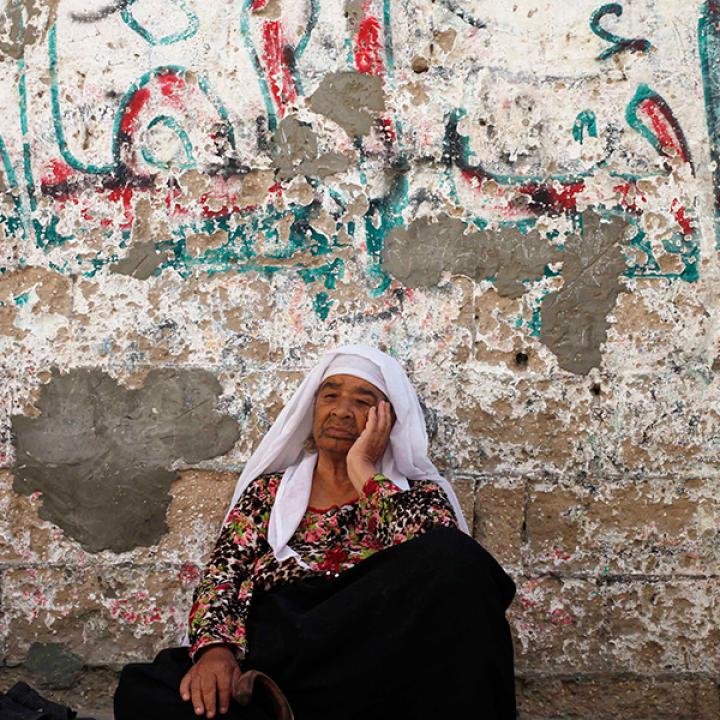
- Policy Analysis
- Fikra Forum
Defying Stereotypes, New Poll Shows Gazans More Moderate than West Bankers

The latest survey conducted by the Palestine Center for Public Opinion, June 27-July 15, 2019, indisputably confirms this highly counter-intuitive finding from other recent polls: on many issues related to Israel, the two million Palestinians in Gaza actually voice significantly more moderate opinions than do the roughly equal Palestinian population of the West Bank. So surprising and dramatic are these differences that the best way to present them is simply to compare the results from a list of key questions, as follows:
What accounts for such surprising differences? One plausible explanation is that Gazans live in more difficult economic and social circumstances, and have been more exposed to severe Israeli military retaliation for Hamas missile strikes–so they are even more focused on everyday survival, and more open to pragmatic, short-term options for economic relief, coexistence, or even cooperation with Israel. Another plausible explanation, not mutually exclusive, is that Gazans are even more fed up with their own corrupt, repressive, rejectionist, and religiously extreme rulers– and so somewhat less inclined to concentrate their resentment against Israel. Both explanations are supported by a comparison of the results from other questions, more oriented toward internal affairs, as follows:
Surprisingly, Gazans are somewhat more stoic than West Bankers when comparing their own circumstances with other Arab populations. We asked respondents if they agreed or disagreed with this statement: “When I hear about what’s happening in Syria or Yemen and other places, I feel that my situation is actually not bad.” In the West Bank, at least half agree “somewhat” with that notion. Among Gazans, however, despite their objectively worse conditions, that proportion rises to two-thirds.The more hawkish position of the West Bankers may be informed by their realization that they are less likely to suffer from the Hamas animosity they advocate.
This pattern does not hold across the board. On several other, more hypothetical or visceral questions, Gazans are at least as militant as West Bankers. This is true of justifying violence against Israeli settlers, rejecting Israel’s legitimacy, and mixed views about long-term peace. In addition, on some aspects of Jerusalem, Gazans are even tougher than West Bankers:
Overall, the Gazan public’s relatively moderate views on some crucial economic, political, and even security issues defy both common misconception and their own hardline Hamas overlords. For this reason, contrary to conventional wisdom, short-term proposals to improve Palestinian life would probably find greater popular resonance inside Gaza than in the West Bank–even if the practical difficulties of implementation may be worse under Hamas than under Israeli or PA supervision. A greater focus on such incremental progress Gaza would therefore be a valuable option for U.S. policy to consider, especially as the PA continues to reject any official engagement with the United States.
Methodologically, this survey is comprised of face-to-face interviews with representative samples of 500 adult Gazans and 500 West Bankers, using standard geographic probability techniques. The Palestinians pollster employed highly qualified and experienced local staff exclusively in each territory, with strict assurances of confidentiality and advanced, real-time GPS and tablet-based quality controls. The sampling frames, fieldwork protocols, questionnaire translation, data processing, and reporting were personally supervised by the author in previous polls by this company, and found to be entirely satisfactory and credible. The statistical margin of error for each sample is approximately 4 percent. In other words, in theory, 95 times out of 100, results for a typical questions would vary by no more than plus or minus 4 points from what would obtain if every person in the target population could be surveyed. Additional methodological details are readily available from the author on request.






